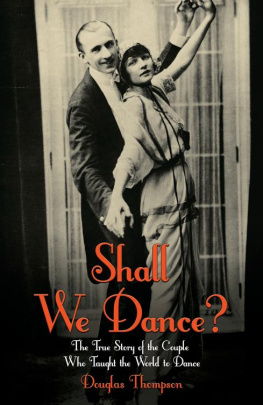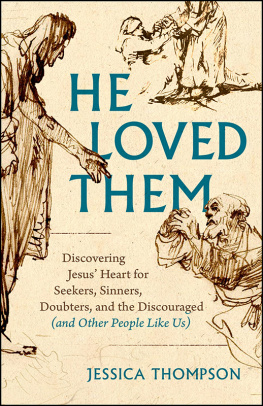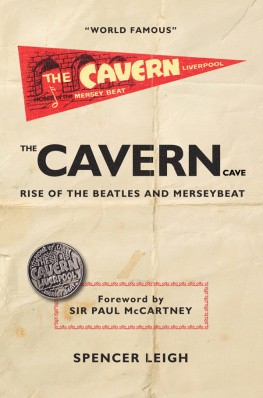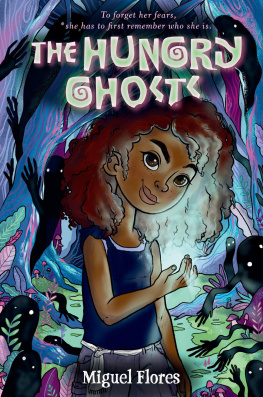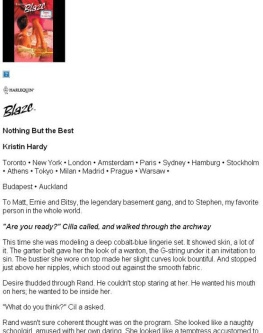Its been a long and winding road but made even more enjoyable by rediscovering the past in Liverpool, Manchester, Belfast, Edinburgh, Glasgow, London, New York and Los Angeles. The survivors of the Sixties and early Seventies now live worldwide and although their hairstyles have changed in some cases vanished their memories remain intact and invaluable. It helps to have talented friends. I thank them all.
On the head stone I want:Here Lies Cilla the Singer.
C ILLA B LACK , 2014
W ell, what a life.
It was all so fast, so amazing, so abundantly ridiculous, so impossible, but the remarkable metamorphosis of Priscilla Maria Veronica White into Cilla Black, the Queen of British popular culture, was so real.
Cilla said that in the early days she had to pinch herself to prove it was true and not some daft teenage dream. She was a top-ten singer, a variety entertainer, an enduring primetime television performer, a millionaire (aged twenty-five), and, always, a star: for more than fifty years.
This was something she had no qualifications for. She earned the credentials with her girl-next-door warmth, unthreatening mischievousness and endearing vulnerability. Her story gathered something of a Hollywood veneer over the years, and you can see why: the convent girl turned typist from the no qualms land of Scotland Road, Liverpool, the struggle, the ups and the setbacks, the promises, the chances and the brutal disappointments, and the kismet moment when John Lennon called up Cyril to sing at the Cavern Club where she checked coats during her office lunch breaks.
It wasnt a lark it was a sixties happening. Cilla, nervous, her face matching her red hair (a sixpenny rinse), respected Lennon and wanted to impress. She looked over at him, dispatched her doubts, and belted out a winner. She wasnt yet being touted as the Edith Piaf of the future, but it was a start to her rule as the Queen of the Swinging Sixties. Like the Beatles, she soon left Merseyside and the Merseybeat behind, and for all of them the often scary sequins of show business began pumping through their veins.
Yet, the foundation of her fame and the longevity of it, was down to the way she remained on speaking terms with the person she used to be. Cilla was always well-grounded, always pragmatic. In a moment of intriguing insight she confessed to Cynthia Lennon, They told John [Lennon] he could walk on water and John believed them. They told me the same thing but I never believed it.
With her beloved husband Bobby Willis, himself a graduate of the rough and tumble of working-class Liverpool, she established an impeccable brand. Cilla was a professional. With Bobby standing behind her the stage, the microphone, the TV or film cameras constantly watching over her the silent partner in her success, she was never afraid. She was Bobbys Girl; they trusted each other over everyone else. Their bond got them through the triumphs and tragedies, from the gauche beginnings to automatic standing ovations, and television ratings soaring into millions and millions.
Neither of them took it for granted. They said they were blessed. They were lucky. And they worked hard to keep being blessed and lucky and thats how a moment became a career, and in turn became a life.
When Bobby Willis died in 1999, it was written that a piece of Cilla died too. I think, from everybody I have spoken to in the years since, that piece was her heart. Of course, physically it functioned, but the soul of it had been snatched away. She floundered in a revolving calendar of benign experiences. It was a bother to be bothered.
Publicly, she put on the glad rags and delivered the champagne smile and quotes punctuated by the cheeky trademark laughter. She worked, performing in Cinderella in Aylesbury, Buckinghamshire in 2010, but it was a fleeting cameo of what had gone before. She had the support of three sons but they had lives too. She had a host of entertainment friends but they had cares and careers in a world where affection can be brittle. It can be lonely in a crowd. Cilla acknowledged that: Over time Ive become quite happy in my own company. Im alone, but not lonely, and no one could really take Bobbys place.
When she died on 2 August 2015 at her villa in Estepona on the Costa del Sol, she had gone off for an afternoon nap. In the conclusion of this book she talks about ageing, about death and embracing it, but as time moved on and despite hearing problems and the anguish of arthritis, she was growing toward the notion of KBO Keep Buggering On and was set on enjoying the Spanish sunshine, taking each day as it arrived. Only the day before her death she was our Cilla and posed for photographs with a carefree group of girls on a hen party who arrived at Malaga Airport as she did. Shed made a career from being always up for a laugh and the professional in her won the day. She looks truly pleased in the photographs.
The antithesis is the sadness her death has provoked. Famous faces, most crestfallen, flicked across television news broadcasts, and the outpouring of grief on social media reflected that there was no them and us in the reaction to the end of Cillas story. Everyone knew Cilla. Her personality floated above class, something she said she never had. She did have style. It was unique and turned her into the highest paid female entertainer on British television. She made the heavy work of light entertainment look easy, she seemed as comfortable on the set of Blind Date as she was in conversation with Princess Diana or, indeed, the Queen. She could reunite long-lost families with genuine happiness. She had, and celebrated in having, the common touch. Its difficult to find a bad word spoken about her.
But, of course, you can. In 1964 she appeared in the Royal Variety Performance; the arch-snob Nol Coward, watching in the stalls, thought her ghastly beyond belief. In the kitchen sink world of the sixties that was an enthusiastic endorsement. For years Cilla and Bobby Willis kept a copy of the quote in a dressing room. It was Cillas turn to offer a review when in 2014 Sheridan Smith starred as Cilla in a three-part television biopic. She thought both the series and Sheridan Smith were terrific. As did the critics. Strangely, it provoked a renaissance for Cilla and talk of television work, even a comeback of Blind Date.
The pragmatic Cilla, then aged seventy-one and still on nodding acquaintance with who she was and where she came from, knew better. On seeing her story told on television she conceded, Its hard to watch your life unfold. And sad. Life changes. I was a bit of fun and a bit of Scouse rough and everybody liked me. I was normal.
On that last note there is debate and what follows rather proves that point.
Douglas Thompson, Lavenham, Suffolk, August, 2015.
CONTENTS
Ours was a great love. We were at one. Yes, I know my Bobby wants me to be strong, but at times I cry so much I can hardly breathe.
C ILLA B LACK, 2001
C illa Black is a star reborn, an incredible survivor. Just look at her in the 21st Century. She often appears in figure-hugging, leather or dark denim pants with fitted designer shirts and the beloved black stiletto boots from Gina. Her hips are narrow, not matronly, and for certain outfits she parades a chunky gold belt draped across them.
For her, there has always been a reason for everything motivated, at first, by understandable ambition. She fought the odds to become the highest paid woman on British television.
She was never been one for a cavalcade of self-acclaim. But it is hard to avoid. Cilla Black, like time, has moved on. Her hair has gone from geranium to Titian, her spirit less carefree, more conservative and protective. She has stepped into a world of



